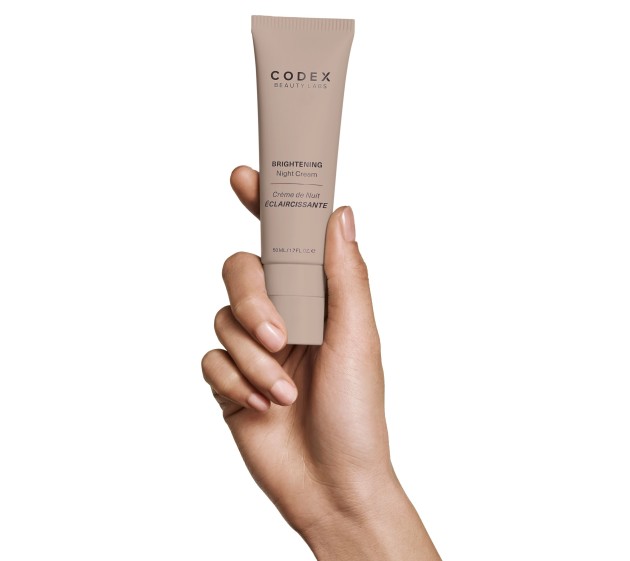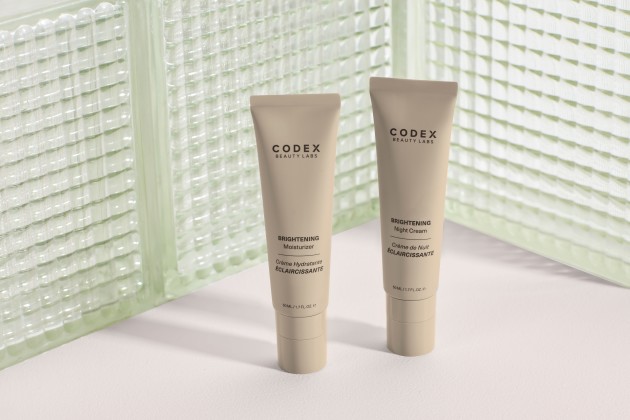
What does “clean beauty” mean to you?
Sustainability has seemingly given new life and purpose – a rebirth of sorts, to the beauty industry. In many cases, it has also highlighted a new, clean and attractive visual appeal. Not only is the clean beauty market on track to grow nearly 10 percent each year, but it’s also projected to reach a whopping 25.11 billion dollars by 2025.
Still, as with all good things, there’s a slight catch: Clean beauty is confusing. With all the mixed-up jargon and phrases and “bad” versus “good” mentality among brands and products, the entire clean beauty scene can feel needlessly complicated. Codex Beauty Labs want to set a new standard in the beauty industry and see its adoption by other brands over the next five years.
The most important aspect of Codex Beauty Labs, is its exceptionally effective. For this reason, they have developed their own Beauty Code, a set of core principles, guidelines and ethical codes of practice that have been orienting this beauty brand since the beginning. All products are submitted to the kind of rigorous testing found in biotechnology and a strict adherence to good manufacturing practices.

We asked CEO of Codex Beauty Labs, Barbara Paldus; What does “clean beauty” mean to you?
“To me, “clean” means two things:
- Free from dirt, uncontaminated: the product is manufactured in a cleanroom facility with good manufacturing practices and automation that minimizes human contact; the raw materials are inspected and suppliers are audited for international safety standards; microbial testing of the batch and filled product; touchless packaging so that the use of the product doesn’t contaminate it.
- Morally uncontaminated or pure: transparency to the consumer by the company on its performance claims and ingredients; sustainability to preserve clean air and water; efficiency to not use more resources than required; fair product prices to the consumer and fair market prices to suppliers.
The beauty industry has a lack of transparency, science, and is afraid of data. More recently, the “clean” beauty movement started a trend of fear mongering about chemicals, when in fact even water is a chemical! By burying science and logical thought, they are doing a disservice to the consumer who can’t make rational decisions based on facts.
Our main mission is to lead the beauty industry in adopting a scientific and data-driven approach to ingredient sourcing, product safety, product efficacy, and overall sustainability, in order to improve customer satisfaction and trust.”

Codex abides by a strong carbon footprint. The brand’s Antu Brightening Moisturizer protects the skin barrier and helps with UV recovery while reducing the appearance of pores, and the Antu Brightening Night Cream repairs the skin barrier while softening skin and improving texture.
All products meet Codex Beauty Labs' strict standards and uncompromising quality while undergoing stringent efficacy testing to ensure all products perform exactly as they say they will. Codex abides by the Nagoya protocol to pay a royalty on sales for the intellectual property contributions of indigenous peoples while also leading the way in sustainability, packaging products in negative carbon footprint, airless, touchless tubes.
“People are looking at ingredients because there has been a lot of fear-mongering by “clean” brands. Because of a general lack of transparency in the industry in the past, and the increasing storytelling and lifestyle advertising, customers started losing trust in the messaging of the large brands. Sadly, the indie brands that founded the clean movement lacked rigorous science”, says Pladus.

This left the consumer without trust or information. Consumers are smart, so they started researching ingredients. Because they had no data from the manufacturers other than the ingredients (which are mandated by regulations), they started caring about and analyzing the only data they did have: the INCI (International Nomenclature Cosmetic Ingredient) list. They started trying to understand and question the formulations and preservatives. They started looking for specific active ingredients such as Vitamin C or retinol and their concentration.
At Codex Beauty Labs, we conduct efficacy on every single product to prove its performance. This testing is carried out at a third-party clinical facility under the supervision of a dermatologist and toxicologist. The technicians use instrumentation that is accepted by the dermatological community for evaluating specific skin parameters to produce quantitative measurements.
We believe that by publishing our data, we can establish a new reference point for both consumers and the beauty industry. Such an efficacy panel can effectively level the playing field for both global corporations and small indie brands, as well as eliminate confusion about ingredient potency versus actual ingredient benefits in a final formulation. It would allow customers to make educated decisions based on proven product performance for their skincare routines, and well-informed value purchasing decisions based on facts rather than marketing jargon.
Codex Beauty is available online at www.codexbeauty.com, www.brownthomas.com and www.arnotts.ie as well as instore at Meadows and Byrne, McCauley Chemists, Cara Pharmacy, Lloyds Pharmacy, The Clean Beauty Edit, Kilkenny Stores, Selfridges, O’Sullivan’s Pharmacies and Dublin Airport.






